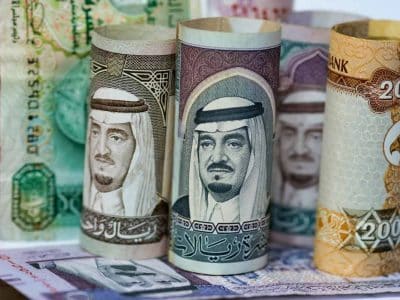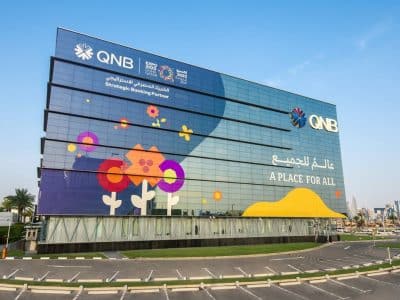Essa Al Maidoor doesn’t hold back when Arabian Business asks how big he wants the Dubai healthcare sector to become: “As big as the biggest,” he replies before chuckling in acknowledgement of his confidence. “We always like to work that way in Dubai. It is coming up, I am 100 percent sure.”
There is little reason to doubt the director-general of Dubai Health Authority, given investment in the healthcare sector across the United Arab Emirates has tripled in the past five years and is expected to soar from $3.2bn in 2012 to $11.9bn in 2015, contributing to more than 6 percent of non-oil gross domestic product.
The country has rapidly expanded since the 1970s oil boom, achieving all manner of world records, but the healthcare sector has significantly lagged behind. Spending on healthcare per capita across the Gulf Cooperation Council is only about $1,200 compared to up to $5,000 in developed countries, according to Deloitte.
The poor spending has seen a significant number of GCC nationals travel overseas for specialist medical attention they cannot get at home.
Deloitte estimates the Kuwaiti government spent $1.7bn on treatment costs for patients abroad in 2011, while the UAE paid $2.5bn for its nationals seeking medical care overseas.
“There’s quite a lot of outflow of patients in the GCC needing to seek medical treatment abroad in places like the US and Germany,” Deloitte’s director of healthcare consulting, Parham Gohari, says. “The quality of care… [is] why patients prefer to go abroad, especially for major treatments and major surgeries.”
But the story is gradually changing as governments rattled by the Arab Spring look to improve services and foreign investors identify lucrative gaps in the market.
While two thirds of the UAE’s healthcare spending in 2012 was by the government — significantly more than the global average — international private investors are quickly increasing their stake in what may be the last recession-proof industry.
“There are so many coming here; believe me, a lot and on so many levels,” Al Maidoor says of international investors in the Dubai healthcare sector.
“They not only [want] to establish hospitals [but also] the support services for hospitals. There is medical and non-medical support, logistics, which is required for the hospitals.”
Article continued on next page
Al Maidoor says the government is in talks with “many” potential investors — but he is coy about who.
“I’ve had people from Korea, people from the UK and people from Canada and Lebanon [visit his office],” he says.
“We are open to any investment. Excellence and the best quality is our aim, so wherever it is from, our doors are open. The aim is [to] bring up the health standard. To do that you don’t need to start from scratch, start where others have finished with collaboration.”
Symbolising the importance of the Middle East as an investment opportunity, Healthcare UK, the commercial arm of that country’s national healthcare system, chose to launch in Dubai in January.
UK parliamentary undersecretary for health Lord Howe says the Middle East is a priority region for UK investment in foreign healthcare.
“There are amazing opportunities here in the Middle East for having the best healthcare in the world: you have the wealth here, you have great desire to improve the healthcare of the countries here but particularly you have a large young population under the age of 20-25,” Lord Howe tells Arabian Business during his visit to Dubai for the Arab Health conference. “There is substantial scope for collaboration and partnership,” he adds.
Gohari says private healthcare investors are particularly interested in Dubai, Saudi Arabia and Qatar, where there is already good infrastructure.
The region particularly needs specialised medical centres and centres of excellence, especially in relation to diabetes, gastroenterology and paediatric cardiology, and niche medical fields with small demand, he says. There are also gaps in emergency services, homecare, diagnostics, radiology, pharmaceutical production and rural services.
Gohari says the government cannot fund the massive requirements and the shift towards the private sector was inevitable. “The healthcare system is moving towards private sector participation because, obviously, the government cannot sustain this sort of spending,” he says.
“When you look at international benchmarks [for the proportion of public spending on healthcare] this is way, way beyond the benchmark. [GCC nations] should be increasing their focus on the need to get the private sector involved and to examine various different collaboration models.
Article continued on next page
“The market has understood there are significant challenges in countries of the GCC. A lot of them have ambitions to make the GCC or places like Dubai or Qatar or Bahrain a hub for medical tourism.”
Dozens of new projects have been announced in recent years and there is plenty of room for more. Across the GCC, healthcare spending is expected to triple to $133bn within five years.
A $500,000 expansion of Dubai’s Mediclinic City Hospital is expected to be ready by early 2015, while in Abu Dhabi, NMC Healthcare, the UAE’s largest private sector healthcare provider, expects to open its new specialty hospital worth $200m between late 2014 and 2016, with 250 beds offering 23 specialities including emergency, intensive care, paediatrics, cardiology, ophthalmology, orthopaedics and urology.
The UAE also has entered into several partnerships with other countries — most notably the Medical Excellence Japan Centre — to share expertise and work collaboratively.
Some of the biggest spending is being done in Saudi Arabia, where more than 500 new healthcare projects have been announced, including three “medical cities”. The kingdom’s healthcare expenditure reached $24.35bn last year, up 16 percent from 2011, and is forecast to rise further this year.
One of the largest projects to be launched is a “super specialty hospital” to be built in Jeddah, the second biggest city, worth more than $533m. A contract to develop and manage the flagship medical complex has been awarded to Texas-based hospital group, Methodist International.
Prince Sultan Cultural Centre Medical City will include a general hospital, several specialised hospitals and medical centres, wellness and long-term care facilities and a school of health sciences, as well as housing, hotels, a medical university and a sports centre. It is expected to serve nearly five million people in the Makkah region.
About 1,200km north, a 1,000-bed mega medical city also is under construction in the north-western Saudi province of Al Jouf. The Prince Muhammad Bin Abdul Aziz Medical City will cover 2 million sq m and have 200 outpatient clinics, a general hospital, a cardiac centre, an eye hospital, a general laboratory, and a rehabilitation centre.
Health minister Abdullah Al Rabeeah also plans to establish another five medical cities across Saudi Arabia.
But the surge of investment has also produced a shortage of healthcare professionals, which could hamper progress.
Saudi Arabia has sent scores of doctors overseas for training in preparation for the opening of its new mega medical facilities, while a shortage of doctors, nurses and equipment forced the closure of a 60-bed private hospital in Sharjah, UAE, earlier this year.
Article continued on next page
Gohari says the supply of healthcare professionals is the biggest challenge in the GCC. Countries and companies are competing to attract and retain staff, especially doctors with specific expertise such as paediatric cardiology.
The UAE is now granting short-stay visas for specialist doctors needed to work in operating theatres for as little as one day.
“There may only be two to three surgeons [with a particular expertise] in the UAE that have a reputation so, as you can imagine, there would be ten to fifteen institutions trying to get these people on board,” Gohari says. “They can change places and quadruple their salaries.
“Unfortunately the infrastructure has not been put in place to [combat] this. For example, we don’t have proper educational facilities to have professional training [and] there’s no nursing schools. This is a major, major challenge and a major gap in the market.”
The problem is exacerbated by a lack of nationals working in healthcare, Gohari says. In the UAE, for example, the figure is as low as 2-5 percent. The country is heavily reliant on nurses from places such as the Philippines and India, while doctors are commonly from Egypt, North Africa and the Indian subcontinent, Gohari says.
The Abu Dhabi Health Authority already has initiated a drive to encourage locals into the healthcare sector, while Al Maidoor says the Dubai Health Authority is working on a clinical capacity plan to meet the needs of the emirate.
He insists education is a key pillar of the DHA’s plans.
“We have collaboration with countries and international hospitals to maintain that. We are adopting the qualified or established standards… to maintain the standards to ensure that in all our hospitals and healthcare services we have that,” he says.
The GCC also is reliant on importing medical technology and equipment, mostly from the US and Europe, causing the region to fall behind in terms of access to the latest technology but opening up a massive investment opportunity.
“There’s a lag between the time the technology is introduced in the West and by the time the technology is being introduced in the GCC,” Gohari says.
Al Maidoor says Dubai will invest in every part in the healthcare sector.
“We need all,” he says. “Even rehabilitation, oncology, cardiology… My dream is to have all of those established in Dubai [in] five to ten years.
“We need to feel safe and the safety is not only normal safety and security, it’s also when we have a good health service and hospitals. We should have excellent health centres with a general health service and all the specialised centres that are going to be required.
“I wish everybody is healthy, I don’t wish anybody is sick, but if they need it I should be able to provide it for them.”








